After a two-week hiatus, the trial of Senate President Bukola Saraki at the Code of Conduct Trial (CCT) for alleged false assets declaration returns to the spotlight on Friday, when the supreme court rules on the appeal of the accused to stop his trial.
Between September 2015 when the charge was filed against him and December 2015 when the case last came up, a lot has happened. Here is a rundown of how the trial has evolved, plus the key dates.
SEPTEMBER 11, 2015
M.S. Hassan, a deputy director in the office of the attorney-general of the federation, filed a 13- count corruption charge against Saraki. Among other charges, Saraki was accused of making false declaration of assets on assumption of office as governor of Kwara state in 2003.
Saraki was summoned by the CCT, while the Economic and Financial Crimes Commission (EFCC) declared wanted Kennedy Izuagbe, Saraki’s associate who was also former director of the Societe Generale Bank Nigeria Plc.
Advertisement
Izuagbe was accused of money laundering.
SEPTEMBER 17, 2015
Ahmed Mohammed, a judge of the federal high court, Abuja, gave an interim injunction to temporarily stop the CCT trial.
SEPTEMBER 18, 2015
Regardless of the previous day’s injunction, the trial commenced and Danladi Umar, chairman of the tribunal, gave a bench warrant for Saraki’s arrest over his refusal to appear before the CCT.
Advertisement
SEPTEMBER 21, 2015
Saraki was absent at the tribunal for the second time in a row. Daudu Joseph, his counsel, argued that the tribunal was improperly constituted, saying it must be made up of the chairman and two members. But Umar dismissed Daudu’s argument and ordered Solomon Arase, the inspector-general of police, to produce Saraki by 10am the next day.
That same day, the appeal court struck out Saraki’s application seeking to set aside the order for his arrest. Morrie Adumein, a judge, rejected the application, saying it would be better to serve the interest of justice by putting the respondents on notice.
SEPTEMBER 22, 2015
Saraki finally turned himself in, accompanied by 50 senators. He entered dock but pleaded not guilty and said he was being persecuted. The case was adjourned to October 21.
Saraki returned to the appellate court to challenge the jurisdiction of the tribunal to try him. He also asked the court to quash the charges against him.
Advertisement
After its sittings, Moore Adumein, the presiding judge, who led a three-man panel, fixed October 19 for hearing.
OCTOBER 19, 2015
The matter was postponed indefinitely.
OCTOBER 21, 2015
Legislative proceedings, including ministerial screening, were put on hold, as 81 senators followed Saraki to the tribunal. An argument ensued over Saraki taking his seat at the accused box. He eventually entered the dock.
The case was subsequently adjourned to November 5 as a result of the pending judgment of the appeal court on the trial.
Advertisement
OCTOBER 30, 2015
The court dismissed Saraki’s application, saying the CCT was competent to try him. The court also ruled that the tribunal was properly constituted.
“The CCT is a court of criminal jurisdiction, albeit limited jurisdiction… The immediate question is whether it is a court or not. There is no inherent difference between a court and a tribunal. The only difference is that tribunals, in most cases, handle special cases. The tribunal has power to impose sanctions according to the law. It is a court with specific criminal jurisdiction,” Adumein held.
Advertisement
Subsequently, the senate president filed an appeal at the supreme court.
NOVEMBER 5, 2015
He returned to the tribunal and the CCT ruled that his trial must continue despite his appeal at the apex court. In protest to the ruling, Saraki’s lawyers withdrew from the case for what they termed “judicial rascality”.
Advertisement
Umar asked Saraki if he was willing to defend himself, to which he answered in the negative. He then gave Saraki one week to get new lawyers; the senate president protested that a week was inadequate for him to get and brief new lawyers.
He appealed for a month but the request was turned down, and November 19 was fixed for hearing.
Advertisement
NOVEMBER 12, 2015
In a unanimous decision read by John Fabiyi, leading a five-man panel of the supreme court, the tribunal was ordered “to tarry a while”.
The order of the apex court followed a concession by the federal government’s counsel, Rotimi Jacobs, for the proceedings of the tribunal to be halted if Saraki’s main appeal would be given an accelerated hearing.
NOVEMBER 19, 2015
Following the existing supreme court order, the tribunal could not sit on this day.
DECEMBER 3, 2015
Mahmud Mohammed, chief justice of Nigeria, led a panel of seven justices to announce February 5 as the date when Saraki’s appeal would be decided.
FEBRUARY 5, 2016
The supreme court dismissed the appeal to stop Saraki’s trial. In the lead judgment taken by Justice Walter Samuel Onoghen, the court held that the CCT was properly constituted to exercise jurisdiction over Saraki’s trial. It also resolved the issue of whether the tribunal had jurisdiction to try criminal matters and issue bench warrants against Saraki.
1 comments

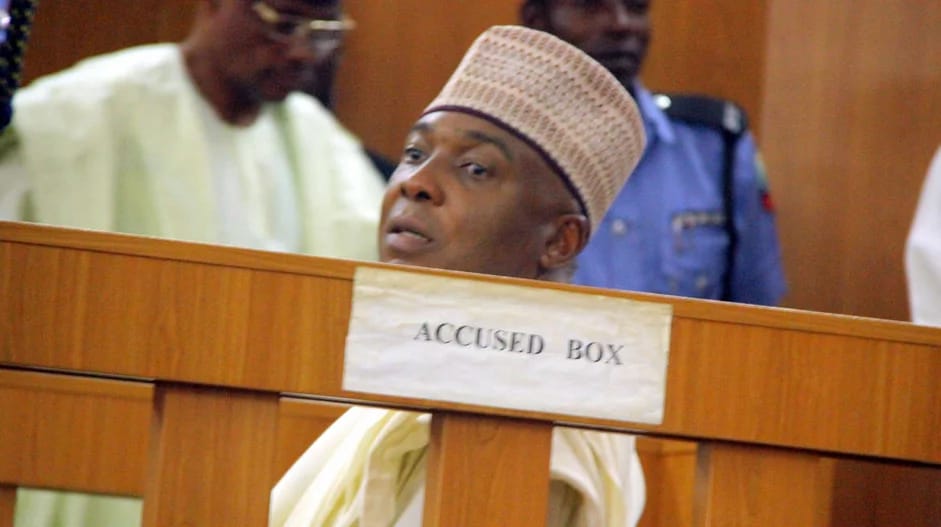


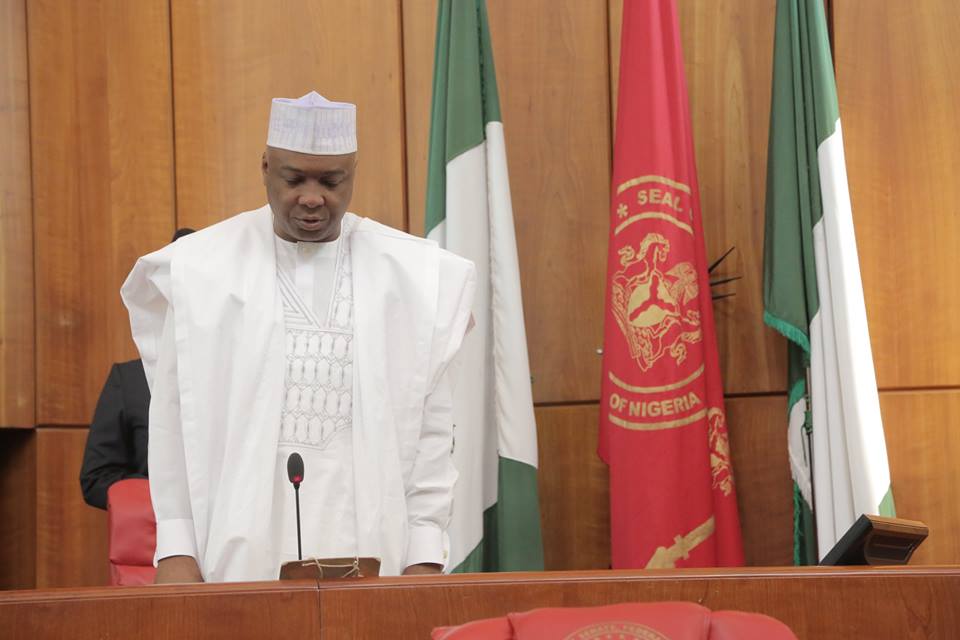
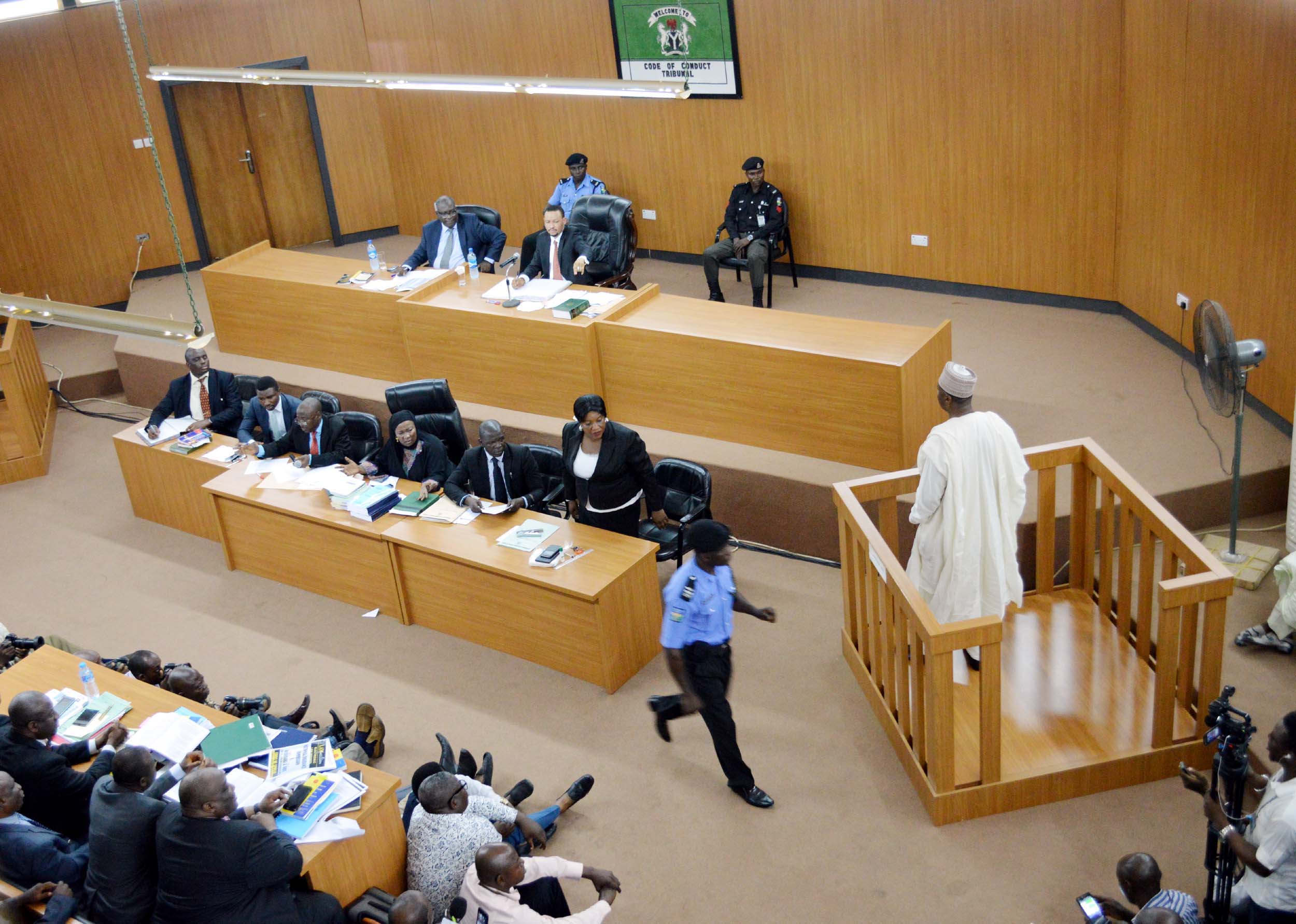
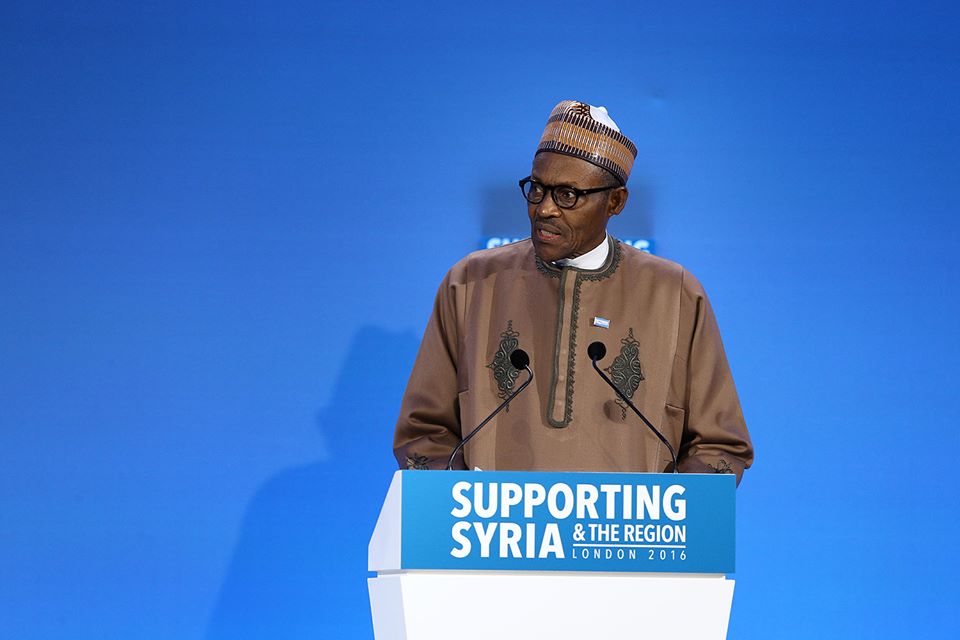
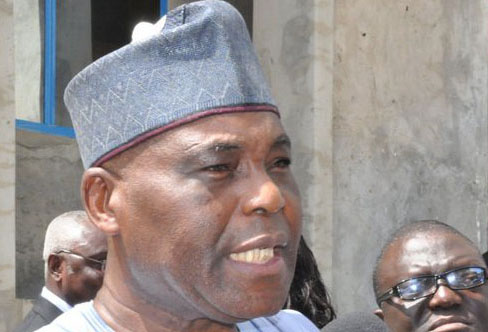
Your comment..can someone run away from his shadow,?